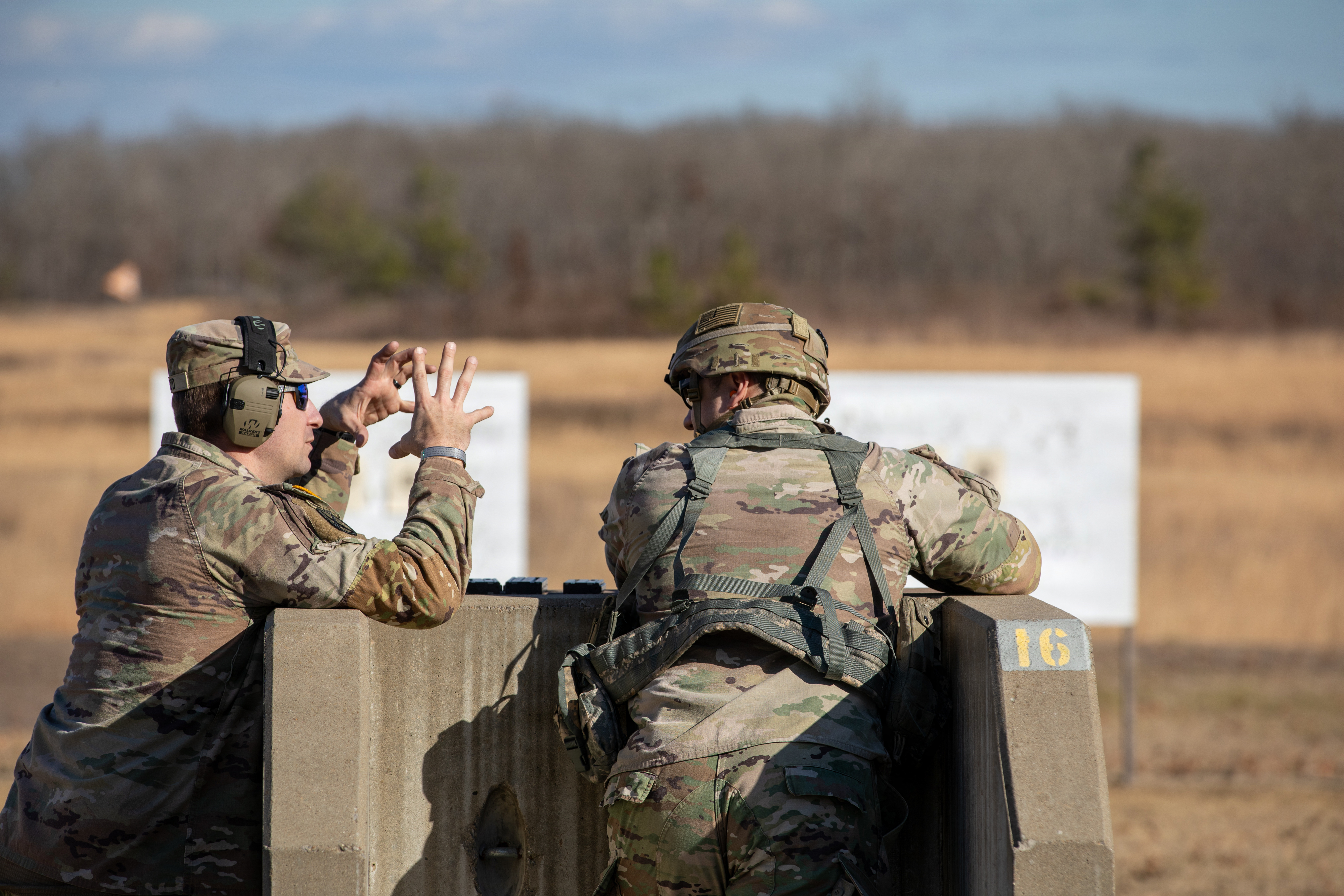Dual Military: How to be Successful

‘If the Army wanted you to have a spouse, they would have issued you one.’ Throughout our time in the military, this phrase was one my husband and I frequently heard as young lieutenants from seasoned Noncommissioned Officers and Officers, often in jest with an undercurrent of truth. Although the Army continues to improve programs and systems to support marriage and family, service members married to other service members make-up only 5.1% of the Army population1 and often face challenges unlike those in more conventional marriages. With such a small population, it can be hard for dual military service members to find the right mentors.
Our seventeen-year marriage is just one of thousands within the military, informed by our own mentors as well as dual military friends and acquaintances met throughout each of our twenty-plus year careers. In the upcoming articles, we share our collective experiences and observations to provide support to you as you consider best options to achieve your desired quality of life with the successful balance of work and family. Who you choose to marry is arguably the most important decision you will make in your lifetime, so, before you grab your partner and head to the courthouse, there are things you and your partner should consider and discuss.
Every couple heading into marriage should closely assess their expectations about matrimony but the dual military couple arguably has a few more things to consider. How each partner defines marriage as well as personal and professional success ties directly to expectations and career management. These expectations go beyond who cooks the meals, cleans the house, manages the finances, or mows the lawn; although these could trace to more firmly rooted beliefs about role responsibilities. Where will marriage stand in your priorities? What do you want to achieve in your military careers? Are you willing to endure separation from your spouse? If so, for what and how long? What sacrifices are you willing to make for your spouse? Competitive assignments? Postponing children? How will children change your expectations? Do you expect your partner to get out of the military when you have children? How willing will you be and for how long will you endure separation once you have children or other dependents? The answers to these questions are likely to evolve and potentially change once married, especially when factoring rank (year group), military occupational specialty (MOS), and professional requirements like deployments, schools, and promotions.
The number of factors to consider can become overwhelming which is why every dual military couple we know emphasizes the importance of communication. I know – cliché, right? However, if everyone advises it, there clearly is wisdom from experience here. Communication starts with you. Lifelong learning and discovery lead to improved self-awareness and growth which you must share with your spouse as your marriage and careers progress. Together, you determine what your marriage needs and how your personal goals tie to these needs and expectations. Be alert to feelings of unhealthy competitiveness and resentment. Whether the same MOS or similar rank, some partners grow to feel threatened and resentful of their spouse’s success, particularly if that individual feels it comes at a cost to their own professional goals and achievements. Both you and your partner need to be honest with yourselves and each other as these inclinations can cause serious problems for you as a couple and others.
Your communication does not stop with your partner. You must extend it to those who directly support you, your team which may be close family and / or friends. For those without kids, this may not seem necessary to have, but we encourage you to build one anyway. Every marriage needs a team who supports their marriage and profession and will be there, no matter what. You may have it built already and not realize it – parents, siblings, roommates, teammates, childhood or college friends. These are people who take care of your home when either you or your spouse is deployed, foster your pets, take you to the airport, live in the hospital when you or your spouse is injured or becomes ill while the other is deployed.
Mentors may become a part of this team but largely stay within the professional lane along with your unit leadership. This group is also one to which you and your partner must communicate your personal and professional goals. They will help you navigate professional requirements to enable successes while balancing what is best for your relationship. Sometimes leadership, although well meaning, may not provide the best advice. For instance, you may have a leader that advises you and your same MOS partner to seek assignments in separate Divisions to stay competitive which may lead to unforeseen time apart and potential marriage problems. You may experience leaders who may consider your decision to start a family as an indication of your intent to leave the military and therefore may rate you differently. Similarly, some leaders have bias against assignments which you may consider in order to make the next PCS work for both you and your spouse. You must determine how much to share with your leadership based on your assessment of your rater and senior rater. You can often gain a strong understanding of your leadership’s perspective by listening carefully in what they say when addressing formations, leadership in meetings, training events, and counselings. You can also improve your understanding by speaking with the XO, your PSG, your 1SG, or your CSM. We hope you have outstanding leaders who enable you to fully share your thoughts on what you want and need within the military but our experiences have shown that you will run into instances where this is not the case. Rely on your team, mentors, and previous leadership when you find yourself working with biased leadership.
You and your partner need to communicate the same message through the Assignment Interactive Module Version (AIM) marketplace and to your respective branch representatives at Human Resource Command (HRC). Use the marketplace to create feasible courses of action and to put your best foot forward when interviewing with identified units. When interviewing, be sure to communicate to your leadership that you are dual military. If it is important for you to be stationed with your spouse, be sure you identify this as your number one assignment criteria. If the unit wants you, they can become an advocate in helping to find a unit for your spouse. HRC can also help in this endeavor. Remember, HRC is not required to assign based on love or intent, they assign based on a service member’s enrollment in the Married Army Couples Program (MACP) which requires a DA Form 4187 and an official marriage certificate which is why some service members rush to legalize their marriage with a Justice of the Peace (JOP). Even once enrolled in MACP, you are not guaranteed joint-domicile, aka assignments within the same geographic location. However, with MACP status, it is much easier to navigate positions which will keep you together and provide some entitlements when you are not. Regardless of your marriage status, it cannot hurt to have an open conversation with your branch representatives. We advise against the sprint to a JOP unless certain he or she is the one for you.
Last but certainly not least, we recommend you find a counselor you trust and to do this before you have problems. Marriage is hard, whether you are in the military or not. No matter how great you think you are at communicating, we can guarantee you can improve. Just like a professional athlete, your marriage can perform better with the right coach. A mentor of mine told me frequently, “to take my vitamins” as advice to a then newly married CPT Conkey to focus proactively on my marriage. His advice implied a multitude of actions to include counseling. Throughout the years, Nate and I have used counselors to varying success. When you find one with whom both you and your spouse are comfortable, the counselor can help enrich and strengthen your marriage beyond what you thought possible.
Marrying another service member, in many ways, will make communicating with your spouse far easier than the challenges your peers who marry civilians will face. Your spouse will speak your language and understand the early mornings, late nights, and the phone calls that come at all hours which may consume the rest of that day or weekend. They will know what you are facing while deployed and send the best care packages. You will be each other’s sounding board and mentor. You may have an awkward day at work wearing a shmedium tshirt or oversized pants but its worth it when you’re running low on time and your spouse can pack your ruck or help put together your dress uniform. Your peers and leaders will become theirs, increasing your network and exposing you exponentially to different leaders and friends. Sometimes the excitement of your shared passion in serving may dominate your conversations and leave less room for other topics equally important. Just because you are talking, does not mean that you are talking about what needs to be said. Communication is easy to do but not as easy to do so effectively and consistently between two people, let alone the teams who support you. As dual military, it may often seem like the Army does not want you to have a spouse, but with the right tools in the kit bag, we hope, in fact, to make it feel like they do.
This article was originally published in 2021 and is the first in a series exploring career management, goal setting, family planning, and other relevant issues.
Author Biographies
Colonel Kate Conkey is a 1999 Furman University ROTC graduate and Military Police officer. She has commanded a battalion, served as a Professor of Military Science, and taught at West Point. She holds a Master of Arts degree from Teacher’s College, Columbia University and Webster University and is currently pursuing a PhD in Industrial Organizational Psychology at Auburn University. She teaches at West Point in the Department of Behavioral Sciences & Leadership.
Colonel Nate Conkey is a 2000 United States Military Academy graduate and career Infantry officer. He has commanded an infantry battalion and is currently the Commandant of the United States Military Academy Prepatory School at West Point. He holds a Master of Arts degree from Teacher’s College, Columbia University.
Team Conkey has been married 19 years and has three children together. Outside of academics, the collective family interests center on sports, reading, and music.
———
1Summary statistics derived from the Total Army Personnel Database (TAPDB), January 2021



